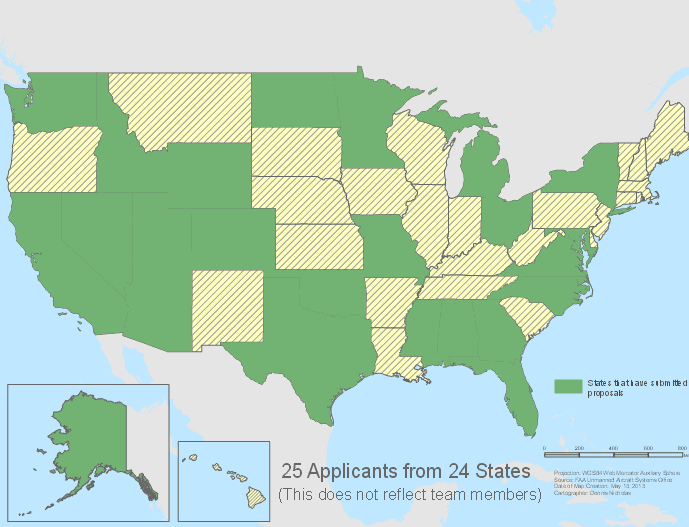
The FAA has already received Unmanned Aircraft Systems test site proposals from 25 applicants in 24 states. All of these organizations are public, but the FAA says private companies may be part of an applicant’s team, presumably the loophole that Amazon used.Amazon CEO Jeff Bezos, after promising he would drop big news on Sunday’s “60 Minutes” did just that, announcing that the Seattle-based company was looking into unmanned drones as a method of delivering Amazon packages.
The “octocopters” would use preset GPS coordinates to carry items up to five pounds which, as Bezos explained to an awestruck Charlie Rose, covers 86% of the items Amazon currently delivers.
The questions about the service, which the company is dubbing Amazon Prime Air, came quick and often on social media. What about power lines? What about wind? What if a package lands on a child?
Could a future really exist in which unmanned drones patrol the skies, delivering laser pointers, printer ink and bottles of Paco Rabanne?
The most important opinion in all of this debate, which will no doubt continue all this week, is that of the Federal Aviation Administration. Known as a conservative organization, the FAA would be the first to pooh-pooh Amazon’s plan, right?
Not exactly.
The FAA last year began a program to integrate Unmanned Aircraft Systems (UAS) into the National Airspace System. In fact, FAA boss Michael Huerta think there will soon be thousands of commercial drones in U.S. airspace in the next five years.
The administration’s plan, as explained by Huerta in a document titled “Integration of Civil UAS in the NAS Roadmap” would seem to back Amazon 100%.
“The FAA is committed to the safe and efficient integration of UAS into the NAS,” says Huerta. “However, as safety is our top priority, UAS integration must be accomplished without reducing existing capacity, decreasing safety, impacting current operators, or placing other airspace users or persons and property on the ground at increased risk. We have made great progress in accommodating public UAS operations, but challenges remain for the safe, long-term integration of both public and civil UAS in the NAS.
The FAA has already received UAS test site proposals from 25 applicants in 24 states. All of these organizations are public, but the FAA says private companies may be part of an applicant’s team, presumably the loophole that Amazon used. The administration, however, says it cannot provide applicant names by state during the procurement process
The remain a lot of questions about Amazon Prime Air and a lot of things remain unclear. What is clear is that betting against Jeff Bezos has proven to be a decidedly bad idea. Since the company’s IPO, in 1997, its stock is up more than 22,000%.
_________________
Leave a Reply
You must be logged in to post a comment.




 Share
Share Tweet
Tweet Share
Share




Comment